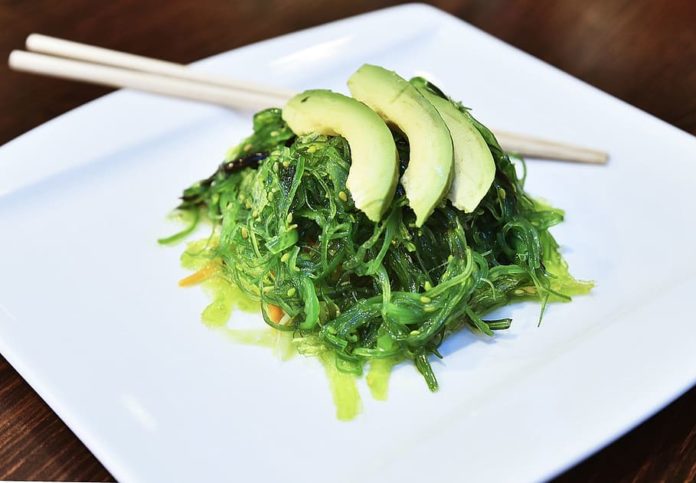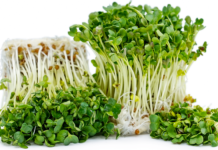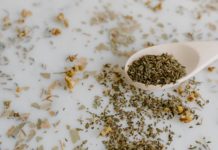Kelp is loaded with nutrients and vitamins and is low in calories, which makes it the best addition to a healthy diet. Kelp is available in the market in different forms, and you can consume it as a supplement of food. Here is an article with all you need to know about kelp nutrition, benefits, and adverse effects.
Kelp is a type of seaweed rich in nutrients that can benefit your health and help prevent diseases. It is a natural source loaded with antioxidants, vitamins, and minerals.
What is Kelp?
Kelp is also known as Laminaria. It is a type of brown seaweed that grows in large underwater forests. Though seaweed can grow in all freshwater or saltwater types, it is usually found in saltwater along the cold and rocky coastlines.
Kelp renders nutrition to different types of sea life. People consume seaweed due to its high nutritional value.
Kelp has been used in the Japanese diet for centuries, and now it is being included in the diet in different parts of the world.
You can consume kelp in different forms, including:
- Supplements
- Cooked
- Raw
- Powdered
Varieties of Kelp
It is available in different flavors, colors, and even has different nutrient profiles depending on the variety. It is available in 30 different varieties.
There are different varieties of kelp, among which Kombu is a famous one. Kombu is a Japanese word that is used for kelp.
You can find kelp noodles and dried kelp in different specialty markets. You can also find kelp in the Asian food section of different supermarkets and grocery stores.
Note – Nutrition found in kelp varies on the basis of products that you purchase. Products having kelp, sodium alginate, and water are low in carbs, fats, and calories. However, they offer nutritional benefits of plain kelp.
Kelp Nutrition Facts
Kelp is an amazing option to obtain essential nutrients from dietary sources. You can add it to nutritious diets alongside unprocessed foods and fresh vegetables.
Kelp has the ability to absorb nutrients from the marine environment surrounding it. Kelp is loaded with:
- Trace elements
- Vitamins
- Minerals
Kelp is an amazing natural source of iodine, which is an essential component for the production of thyroid hormones (Source).
According to USDA, around ½ cup serving of raw kelp contains the below-mentioned nutrients (Source).
- Calories – 17.2
- Carbohydrates – 3.8g
- Protein – 0.7g
- Fiber – 0.5g
- Sugars – 0.2g
- Fat – 0.2g
- Sodium – 93mg
Vitamins and Minerals
Kelp is loaded with a wide range of vitamins and minerals. It is a rich source of vitamins A, C, E, and K. In addition to this; it also contains folate, vitamin B6, vitamin B12. It is also rich in thiamin, niacin, riboflavin, and pantothenic acid.
Iodine is present in kelp in a remarkable amount. It is loaded with minerals, including magnesium, phosphorus, calcium, iron, and sodium.
Kelp Health Benefits
It is low in calories but rich in vitamins, fibers, and minerals that provide a wide range of sea kelp benefits when consumed in a balanced amount. Below mentioned are the health benefits of vitamins and minerals present in kelp.
- Calcium – Helps in bone health.
- Vitamin C – it is an antioxidant which helps in preventing disease and illness. There is a wide range of benefits of vitamin C.
- Iron – Essential for disease resistance and healthy blood.
- Iodine – Important for the production of thyroid hormones and helps in managing healthy metabolism.
- Magnesium – Important for a wide range of biochemical reactions that take place in our body.
Encourages Weight Loss
Various research presents evidence that the type of fiber found in kelp helps promote the feeling of fullness and satiety, which in turn helps reduce the calorie intake. It is one of the best foods and healthy snacks for weight loss.
Seaweed is also low in calories and fat, which makes it a perfect food to add in your diet. Seaweed contains fucoxanthin, which is an antioxidant that helps in weight loss.
Prevent Disease
Stress and inflammation are considered one of the major risk factors of various chronic diseases. Consuming food rich in antioxidants can help in preventing these diseases. Kelp is loaded with antioxidants, including flavonoids and carotenoids, which help in fighting against the free radicals that cause disease.
Antioxidant minerals like zinc and manganese help in combating oxidative stress and is beneficial to protect cardiovascular health.
Reduces Cancer Risk
Three compounds present in seaweed have shown remarkable results in fighting cancers.
- Polyphenols (antioxidant)
- Fucoidan (fiber present in seaweed)
- Polyunsaturated fatty acids
Helps in Lowering High Blood Pressure
Compounds found in kelp named fucoxanthin and fucoidan can help people having issues of high blood pressure. Moreover, folate also helps in maintaining healthy blood pressure, and seaweed is loaded with vitamin B.
Tips to Consume Kelp
Kelp is available in a wide range of forms, and people consume it as a supplement or food. It is the best dietary source to obtain nutrients. Below mentioned are some tips and ideas to consume kelp.
- Blend kelp into vegetable juice.
- Add dried and organic kelp to stews and soups.
- Use dried kelp flakes for seasoning onto foods.
- Serve it with sesame seeds and cold oil.
- Add raw kelp noodles to main dishes and salads.
Side Effects of Kelp
Kelp is safe when it is consumed in the right amount. Nevertheless, it has a higer amount of iodine and heavy metals, which can be harmful to your health if you consume kelp in high amounts.
The recommended intake of iode=ine varies on the basis of sex and age. Consuming too much iodine can cause various help issues like thyroid gland inflammation, goiter, and even thyroid cancer in severe cases.
Due to these reasons, health professionals suggest pregnant and breastfeeding women to avoid consuming kelp. In addition to this, people with thyroid or kidney disorders should also avoid consumption of kelp.
Final Words
Kelp is an amazing dietary source loaded with a wide range of nutrients. Consuming kelp in the right amount can provide various health benefits. However, as it is high in iodine and other heavy metals, one should avoid consuming kelp in high amounts. If you find the above-mentioned information helpful, drop a comment.

















